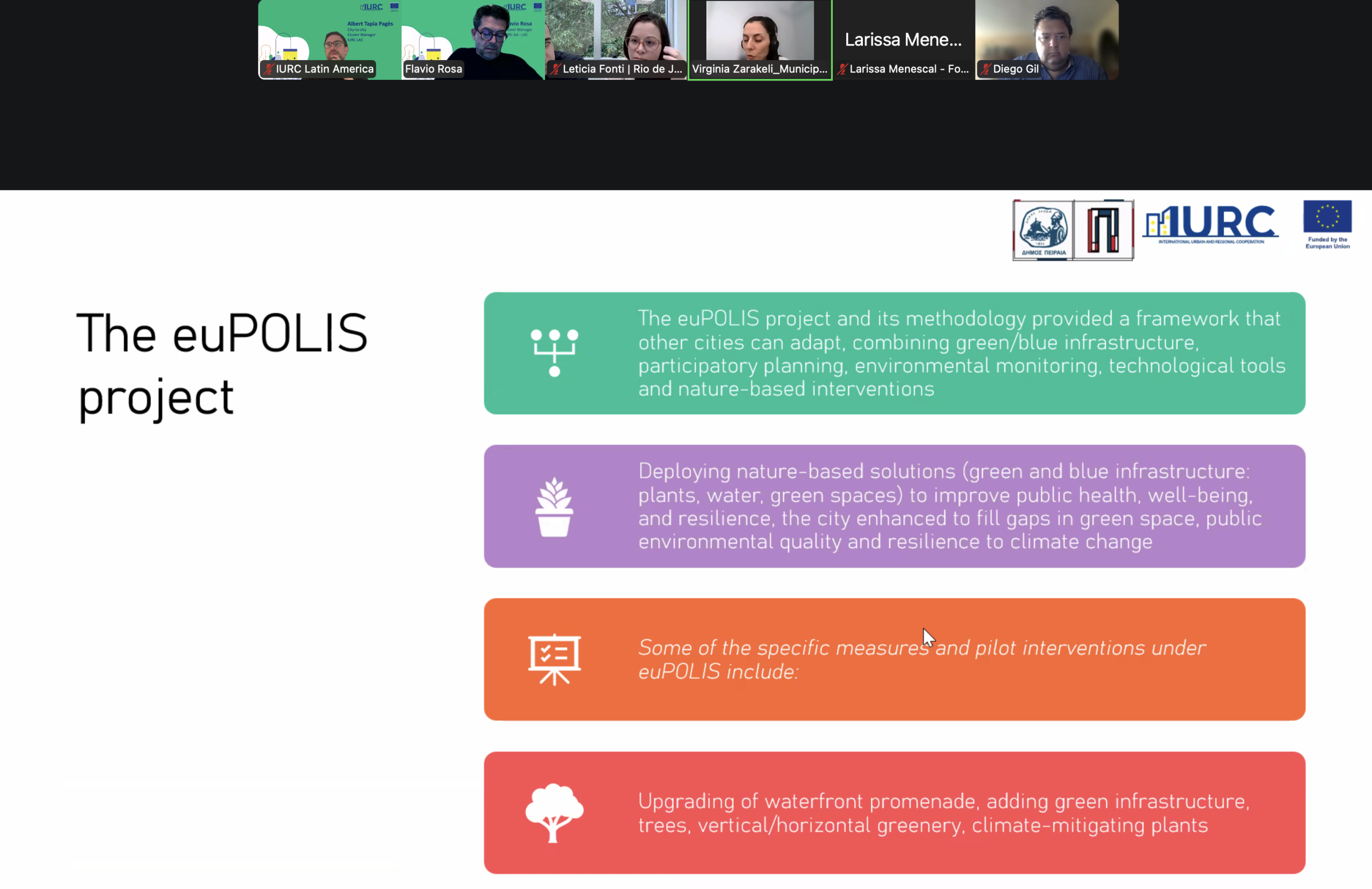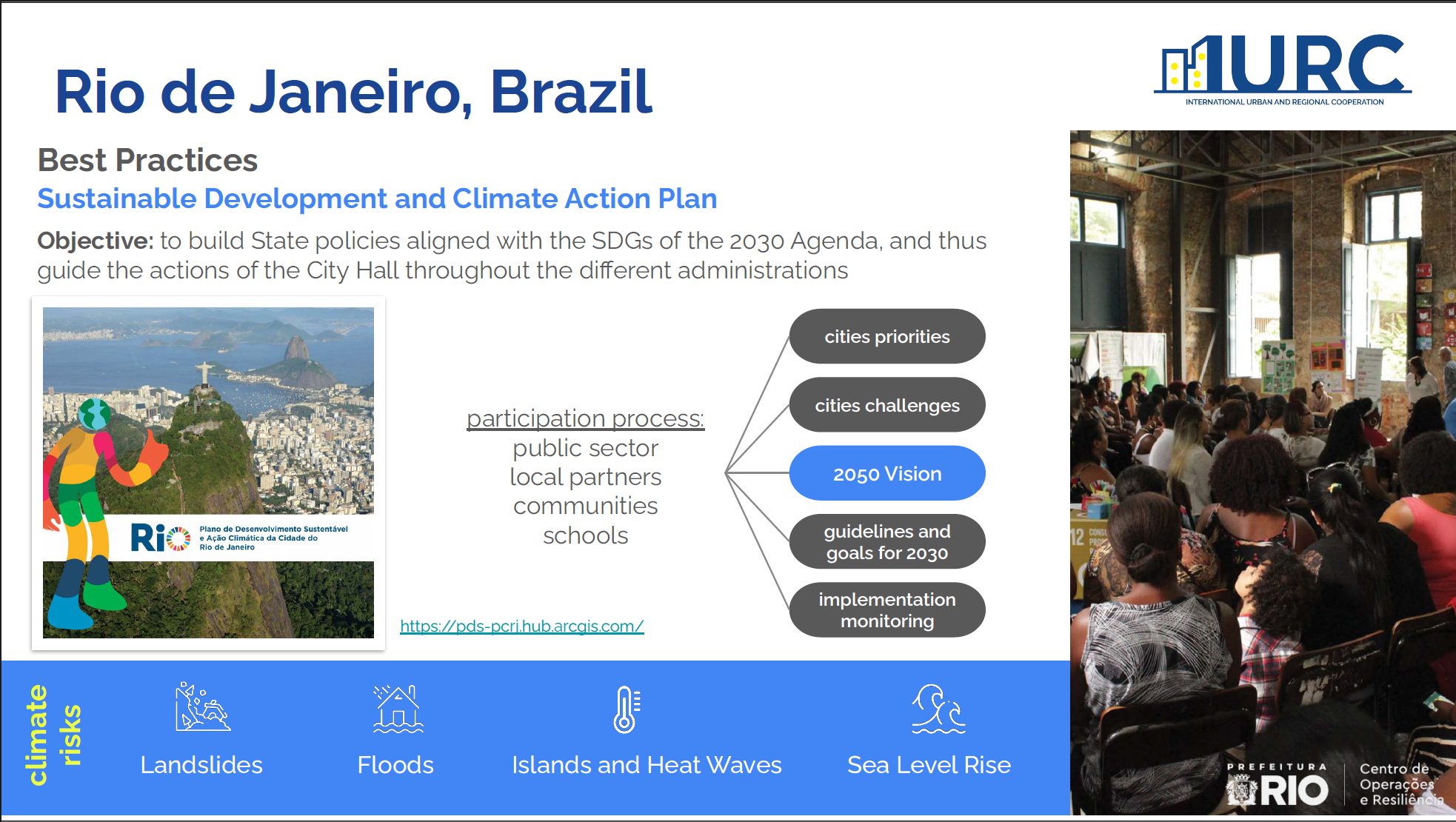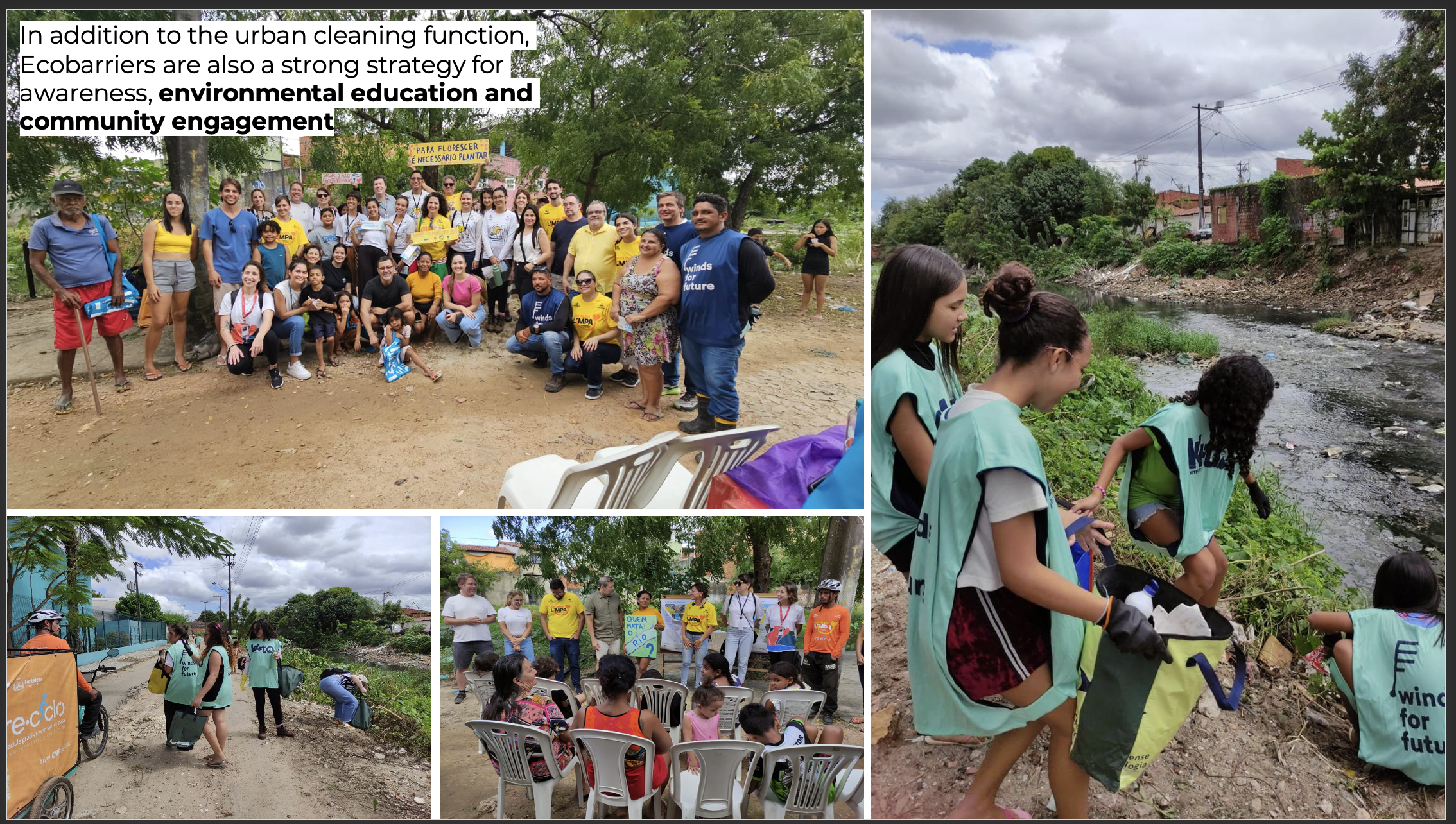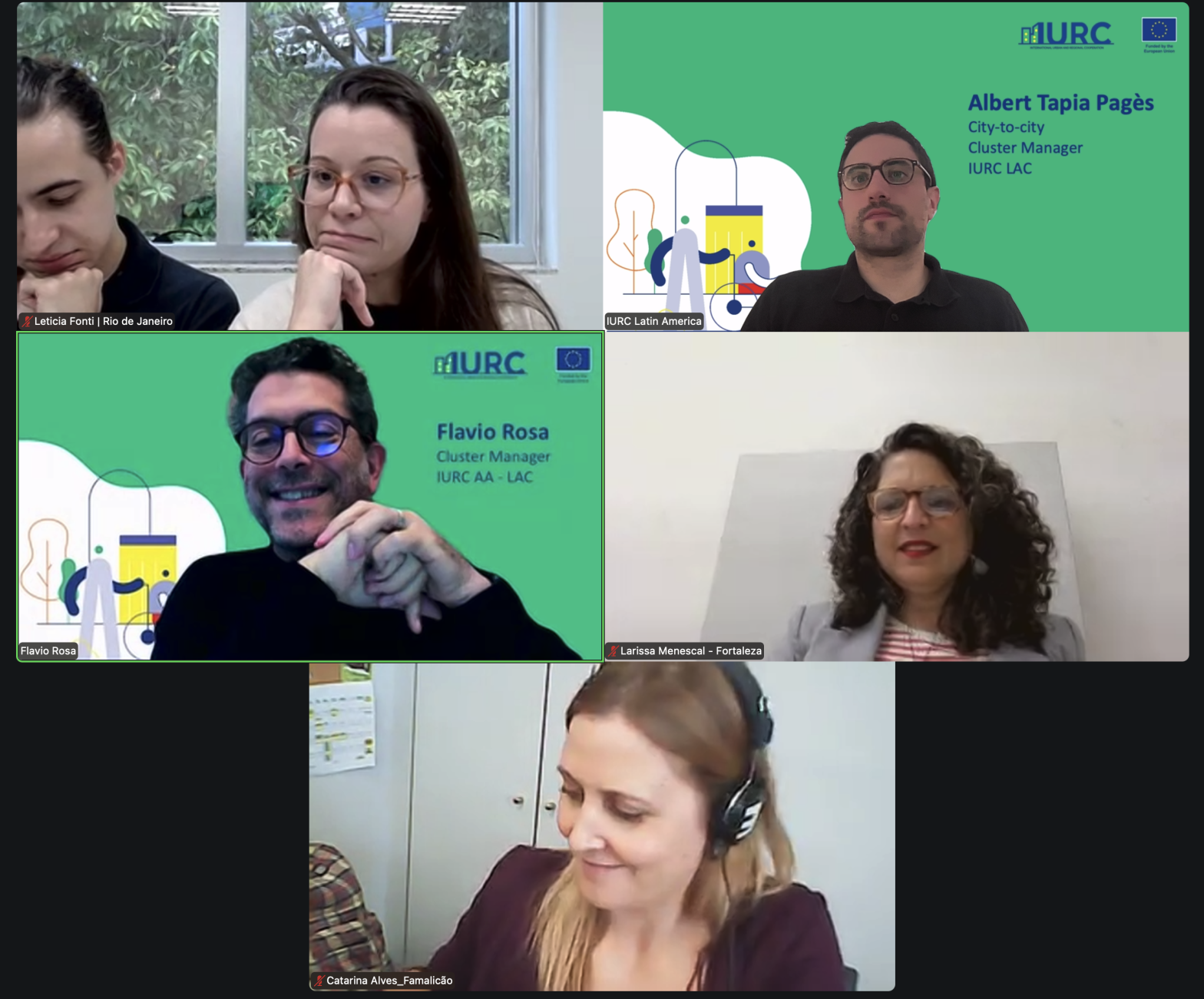8 October 2025 | Online
The IURC Latin America and Caribbean region hosted its seventh cities webinar, focusing on Climate Adaptation and the importance of city-to-city collaboration in tackling environmental challenges. Representatives from Rio de Janeiro (Brazil), Piraeus (Greece), and Fortaleza (Brazil) presented innovative strategies to enhance urban resilience, mitigate heat, manage coasts, and integrate green infrastructure. Flavio Rosa, Climate Adaptation Cluster Manager from the IURC team emphasized that the goal was to facilitate matchmaking among cities for upcoming pilot projects under the IURC climate adaptation cluster.
Piraeus’ Green Adaptation and Urban Resilience Strategies
Virginia presented Piraeus’ comprehensive climate adaptation approach, addressing key urban challenges through the Sustainable Energy and Climate Action Plan and the Climate Piraeus platform — both designed to foster public participation and awareness. She shared practical experiences from EU-funded projects such as euPOLIS and HARMONIA, which apply innovative solutions to enhance urban resilience and environmental sustainability. Virginia concluded by emphasizing future collaboration within the IURC network, encouraging continued knowledge exchange and the sharing of good practices among European and international cities.

Rio de Janeiro’s Data-Driven Approach to Urban Resilience
Gabrielli presented Rio de Janeiro’s Sustainable Development and Climate Action Plan and the Operations and Resilience Center (CORE), highlighting strategies such as polycentrality, transit-oriented development, and microurbanism. The city is implementing green and blue infrastructure projects, including microparks, supported by AI tools for heat and air quality monitoring. Discussions focused on how data analysis and community engagement strengthen these initiatives, with Gabrielli noting the Climate Observatory platform and Piraeus sharing coastal management practices, underscoring IURC’s commitment to collaborative, evidence-based climate adaptation.

Fortaleza’s Nature-Based Solutions for Urban Heat and Growth Challenges
Larissa Menescal highlighted Fortaleza’s experience in applying nature-based solutions to combat urban heat islands and manage rapid urban growth. She explained that the city’s population tripled within just two decades, following a surge that began in the 1970s and 1980s. This expansion led to significant urban challenges and precarious settlements, widening infrastructure and opportunity gaps. Fortaleza is now focusing on green infrastructure and urban reforestation to restore environmental balance, reduce heat stress, and improve living conditions in densely populated areas — a model that aligns closely with IURC’s goals for sustainable, climate-resilient cities.

As cities prepare for the Smart City Expo World Congress in Barcelona, The session concluded with strong momentum toward shared learning and practical cooperation on climate adaptation.
